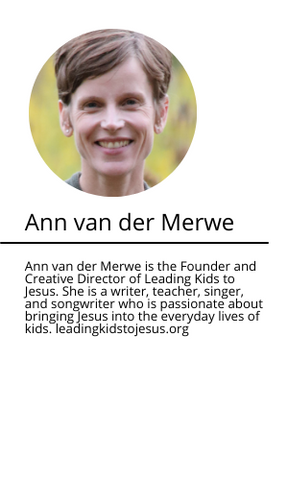
Have you ever wondered why God has given us the Bible? The more I read the Scriptures, the more I am convinced that God has given us His Word to reveal His power and glory, to show us His goodness and mercy, and to help us see how much He loves us. He wants us to recognize our deep need for Him and marvel at all He has done to reunite us with Himself.
The problem is that very few people marvel in response to reading the Bible. The reason, I think, is that when we break apart the Bible into short snippets, it doesn’t seem all that marvelous. Think about a cup of water. We can drink it or wash our hands with it, but we see only its functional value. On its own, it does not seem all that interesting. But when we open our eyes and see the source of that water, the river from which it comes, we can begin to see that this water is truly marvelous. We can see that it not only quenches our thirst and washes us clean; it also sustains a wealth of living things, it is beautiful and powerful, and it offers us a myriad of ways to enjoy it.
If we want children to marvel at the Bible, we need to show them the big picture. We need to bring them to the river so they can not only drink and wash, but so they can see all that God’s Word has to offer. Sharing a cup of water is not bad, of course, and there are times when that may exactly what we need to do. But it should not be the only thing we do, and certainly not the only thing we think we can do when ministering to children. If so, we are underestimating the immensity of what God can do through His Word in the life of a child.
And we are probably underestimating our children, too. We tend to see children according to their limitations…the concepts that are too difficult, the passages that are too long to hold their attention, the language that does not hold meaning for them. But with a little effort and creativity, these obstacles can become opportunities. Concepts that seem too difficult can be reframed and restated in ways that make them accessible. Passages that are too long can be summarized or dramatized rather than skipped over entirely. Language can be unpacked and translated so that it makes sense and opens their minds and hearts to God.
Is this easy? Of course not. Is it worth it? Absolutely! Here are a few tips to help you lead kids to a place where they can begin to marvel at God’s Word.
Connect separate passages of Scripture. If you are exploring a certain theme in Scripture, include multiple passages that speak to that theme so that kids can see how the theme appears throughout the Bible. If you are moving chronologically through the Bible, connect a primary story with one or more from somewhere else in the Bible.
Share the basic context. Share a bit of what comes before and after the passage, who is writing the passage, and its purpose and style. These things help kids see the Scripture as more than words; they help them understand what Scripture is and what it does.
Hold their attention. Having kids act out a passage (spontaneously or with a script, by themselves or with props) can be a great way to move through a longer narrative in an interactive way. You can also read it dramatically yourself or invite a special guest, gifted in dramatic reading, to do so. Approach reading Scripture like you would a picture book rather than a textbook.
Summarize rather than omit. Summarizing the purpose of passages such as genealogies or lists can help kids see why they are there without overburdening them with details. For example, knowing the order of the kings of Israel is not nearly as important as seeing that most of them were unfaithful to God.
Give older kids time and space to read on their own. Quiet reading time will encourage kids to see what stands out to them in the passage they are reading and help them listen for God’s voice as they read.
Unpack language and culture. Share the meaning of original Hebrew and Greek words with kids when such words are central to their understanding of the passage. Take time to talk about cultural differences, and how we need to understand the culture to understand the story.
You can access this entire magazine for free here: Edition 32

